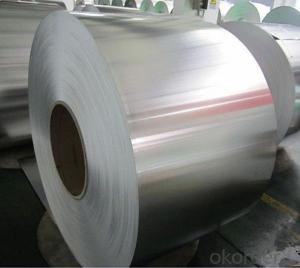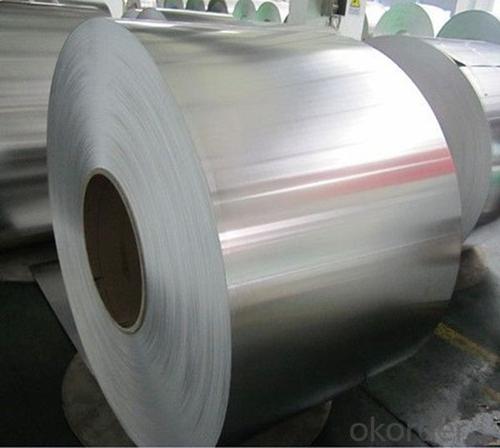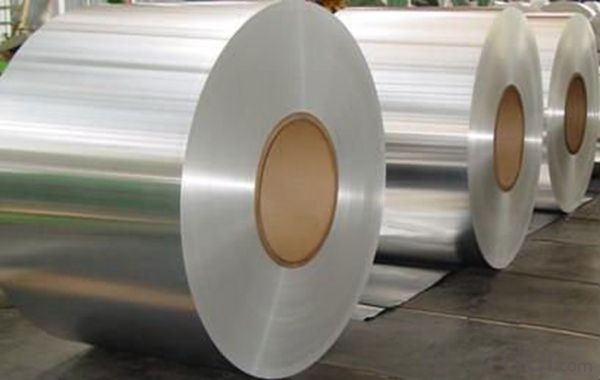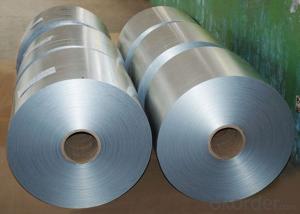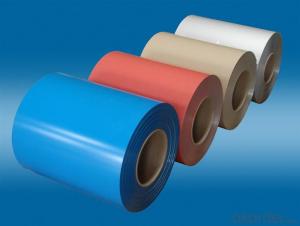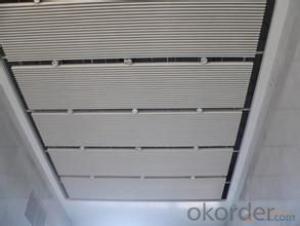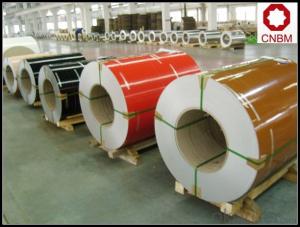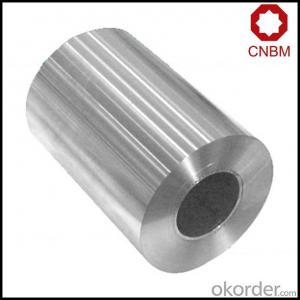11 3 4 Aluminum Coil - Aluminum Rolls for Sale China Manufacturer Supplier
- Loading Port:
- Shanghai
- Payment Terms:
- TT OR LC
- Min Order Qty:
- 5 m.t.
- Supply Capability:
- 10000 m.t./month
OKorder Service Pledge
OKorder Financial Service
You Might Also Like
Specification
1. Specification of Aluminum Rollss for Sale China Manufacturer Supplier
characteristics | Application |
1) Super peeling strength | 1) Building exterior curtain walls |
2) Excellent surface flatness and smoothness | 2) Decoration and renovation additions for old buildings |
3) Superior weather, corrosion, pollutant resistance | 3) Decoration of interior walls, ceilings, bathrooms, kitchens and balconies |
4) Even coating, various colors | 4) Shop door decorations |
5) Fireproof, excellent heat and sound insulation | 5) Advertisement board display platforms and signboards |
6) Superior impact resistance | 6) Wallboards and ceilings for tunnels |
7) Lightweight and easy to process | 7) Industrial materials, materials for vehicles and boats |
2. Application of Aluminum Rollss for Sale China Manufacturer Supplier
(1).Interior: wall cladding, ceilings, bathrooms, kitchens and balconies, shutters, doors...
(2).Exterior: wall cladding, facades, roofing, canopies, tunnels,column covers , renovations...
(3).Advertisement: display platforms, signboards, fascia, shop fronts...
3. Feature of Aluminum Rollss for Sale China Manufacturer Supplier
*Such coil is specially designed to replace aluminum ingot, due to the high export tax of aluminum ingot, the coil has better price than ingot.
*This type of coil can fit customer's remelting furnace just like ingot, no need to make any change to the production line that was previously used for ingot. The standard coil size and weight is very suitable for the feed gate of furnace.
*This type of coil causes less material wastage than ingot when remelted.
*Our coil is made directly from ore, no need to go though the ingot making process, quality is much better than other suppliers who use ingot scrap to make coil.
Be free from Oil Stain, Dent, Inclusion, Scratches, Stain, Oxide Dicoloration, Breaks, Corrosion, Roll Marks, Dirt Streaks and other defect which will interfere with use
4. Certificate:
SGS and ROHS(if client request, paid by client), MTC(plant provided), Certificate of Origin(FORM A, FORM E, CO), Bureau Veritas and SGS (if client request, paid by client), CIQS certificate
5. Image of Aluminum Rollss for Sale China Manufacturer Supplier
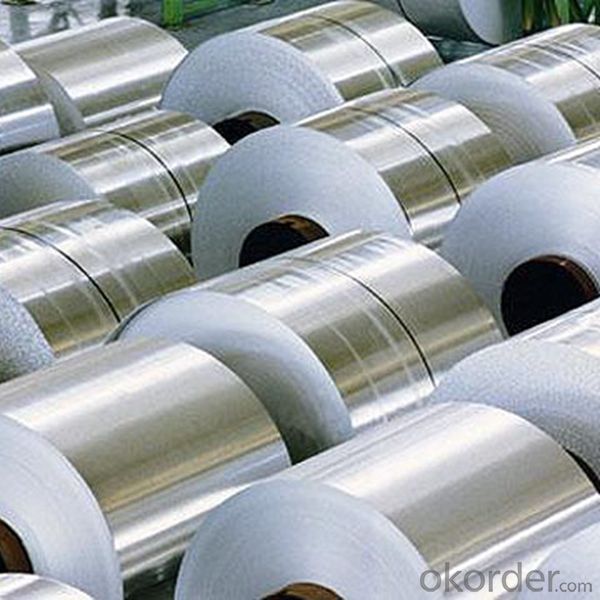
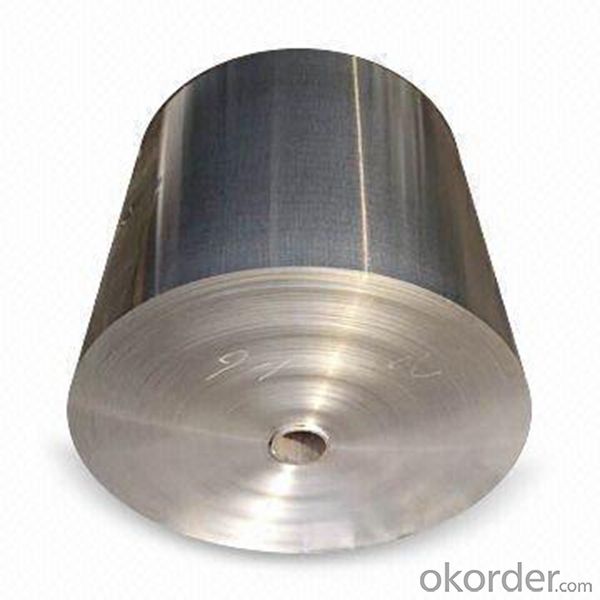
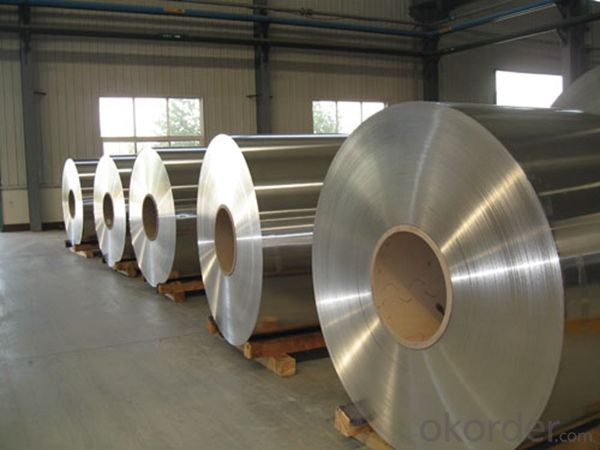
6. Package and shipping of Aluminum Rollss for Sale China Manufacturer Supplier
eye to wall
eye to the wall
with wood pallet (wooded case also available)
7. FAQ
1) What is the delivery time?
Dpends on actual order, around 20 to 35 days
2)What is the QC system:
We have QC staff of 20 persons and advanced equipment, each production is with MTC traced from Aluminum ingot lot.
3) What market do you mainly sell to?
Australia, America, Asia, Middle East, Western Europe, Africa etc
- Q: I have a couple aluminum baking sheets, and when i wash them, then dry them with a towel, it turns the towel black? why is this? are these still ok to use? Ive been putting one of those silicone baking sheets or parchment paper on the sheets because of this. but i cant really do that with the cake pan. so how do i stop it from doing this?
- I means that they are very inexpensive. Aluminum does this when it 's been in soapy water. Use the baking sheets just to be safe until you can get some others of a higher quality.
- Q: Is it possible to utilize an angle grinder for cutting hot rolled aluminum coils?
- <p>Yes, you can use an angle grinder to cut hot rolled aluminum coils, but you must take precautions. Use a grinding disc specifically designed for metal cutting, preferably one with a diamond or carbide grit for better performance on aluminum. Ensure the grinder is equipped with a safety guard and wear appropriate safety gear, including goggles and gloves. Be aware that aluminum can be reactive when heated, so cutting may produce sparks and fumes; ensure proper ventilation. Always follow the manufacturer's guidelines for your specific angle grinder and safety regulations.</p>
- Q: What are the common surface treatments applied to aluminum coils?
- To enhance the durability, appearance, and resistance to corrosion of aluminum coils, various common surface treatments can be applied. Anodizing is one such treatment, involving the creation of an oxide layer through an electrochemical process. This not only protects against corrosion but also allows for the use of different colors and finishes. Painting or coating is another popular treatment option. Aluminum coils can be painted in a wide array of colors and coatings, providing extra protection against corrosion and improving their visual appeal. These coatings can be applied using methods like powder coating or liquid spray, offering varying levels of durability and resistance to environmental factors. Laminating is a process where a protective film or layer is added to the surface of aluminum coils. This film enhances resistance against scratches, abrasions, and UV rays, making the coated coil suitable for outdoor applications. Embossing or texturing is another commonly used surface treatment for aluminum coils. This involves creating patterns, designs, or textures on the surface, enhancing visual appeal and providing additional structural strength and grip. In conclusion, the selection of a surface treatment for aluminum coils depends on specific requirements, including desired appearance, durability, and environmental factors. It is important to consider factors like corrosion resistance, weatherability, and aesthetics when choosing the appropriate treatment.
- Q: Are aluminum coils suitable for gutter systems?
- Indeed, gutter systems find aluminum coils to be quite suitable. Given its durability, lightweight composition, and exceptional resistance to rust and corrosion, aluminum stands as a favored selection for gutter systems. This cost-effective alternative can endure severe weather conditions while boasting an extensive lifespan. Furthermore, the installation and maintenance of aluminum coils prove to be effortless, rendering them an optimal choice for gutter systems.
- Q: Can aluminum coils be used in vacuum applications?
- Yes, aluminum coils can be used in vacuum applications. Aluminum is a commonly used material in vacuum systems due to its excellent properties such as low outgassing, high thermal conductivity, and good corrosion resistance. These properties make aluminum coils suitable for various vacuum applications, including but not limited to, vacuum chambers, vacuum pumps, cryogenic systems, and particle accelerators. However, it is important to note that aluminum can be reactive with certain gases or chemicals, so it is essential to consider the specific requirements and compatibility of the vacuum application before using aluminum coils.
- Q: Is it safe to use aluminum coils in various applications?
- <p>Yes, aluminum coils are generally safe to use. They are widely used in various industries due to their excellent thermal conductivity, corrosion resistance, and lightweight properties. Aluminum coils are non-toxic and do not emit harmful substances, making them safe for applications such as food packaging and construction. However, safety can depend on specific uses and manufacturing processes, so it's important to ensure that the coils meet the required safety standards for their intended application.</p>
- Q: What are the potential health risks associated with aluminum coils?
- Aluminum coils are commonly used in HVAC systems for their durability and heat transfer properties. While they are generally considered safe, there are potential health risks associated with aluminum coils if certain conditions are not met. One of the primary concerns is the potential for aluminum to leach into the air or water supply. Aluminum is a known neurotoxin, and excessive exposure to it can lead to various health issues, particularly in individuals with pre-existing conditions such as kidney disease or weakened immune systems. However, the amount of aluminum that may leach from coils is typically minimal and unlikely to pose a significant risk to most people. Another potential health risk is related to the accumulation of dust, dirt, and other particles on the aluminum coils. These particles can act as a breeding ground for bacteria, mold, and other allergens, which may negatively affect indoor air quality. If not properly maintained and cleaned, these contaminants can cause respiratory problems, allergies, and even infections in susceptible individuals. Furthermore, aluminum coils can be a source of electromagnetic fields (EMFs) due to the electric currents passing through them. While the health effects of EMF exposure are still a topic of ongoing research, some studies suggest a potential link between high levels of EMFs and certain health conditions, including cancer. However, it is important to note that the levels of EMFs emitted by aluminum coils are generally considered to be within safe limits and unlikely to pose significant health risks. To mitigate these potential health risks, it is crucial to ensure proper maintenance and cleaning of aluminum coils. Regular inspections, professional cleaning, and changing air filters can help prevent the accumulation of contaminants and maintain good indoor air quality. It is also recommended to consult with HVAC professionals to ensure proper installation and maintenance of the coils, minimizing the risk of aluminum leaching or excessive EMF exposure. In conclusion, while there are potential health risks associated with aluminum coils, they are generally considered safe when properly maintained. Taking necessary precautions and following recommended maintenance practices can help minimize any potential health concerns associated with aluminum coils in HVAC systems.
- Q: Can aluminum coils be welded or joined?
- Aluminum coils have the capability to be welded or joined. Aluminum, being a highly weldable metal, can be easily joined through the utilization of different welding techniques. TIG welding, MIG welding, and resistance welding are the most commonly employed methods for welding aluminum coils. TIG welding is a precise and adaptable technique that employs a non-consumable tungsten electrode to generate the arc. This method is extensively utilized in welding aluminum coils due to its ability to offer exceptional control over the welding process, resulting in welds of high quality and strength. On the other hand, MIG welding employs a consumable wire electrode and a shielding gas to safeguard the weld zone from atmospheric contamination. This technique is faster compared to TIG welding and is often favored for larger production runs. Resistance welding is yet another prevalent method employed for joining aluminum coils. It involves the passage of an electric current through the overlapping metal surfaces to generate heat and pressure, thereby creating a robust weld joint. This technique is commonly used in industries that require high-speed production. It is important to note that welding aluminum coils necessitates specific techniques and considerations due to the distinctive properties of the metal. Aluminum possesses a lower melting point and higher thermal conductivity than other metals, which can make the welding process more challenging. Proper cleaning, preheating, and the selection of suitable filler materials are crucial in achieving successful welds. To summarize, aluminum coils can be welded or joined using various techniques such as TIG welding, MIG welding, and resistance welding. However, it is imperative to adhere to proper procedures and take into account the specific properties of aluminum to ensure the creation of strong and dependable welds.
- Q: Are aluminum coils suitable for architectural applications?
- Yes, aluminum coils are suitable for architectural applications. Aluminum is a highly versatile and durable material that is commonly used in the construction industry for various architectural applications. Aluminum coils offer several advantages for architectural use, including their lightweight nature, corrosion resistance, and ability to be easily formed into desired shapes and sizes. These coils can be used in architectural applications such as roofing, cladding, facades, and gutters, among others. Additionally, aluminum coils can be coated with different finishes, providing a wide range of aesthetic options for architects and designers. Overall, aluminum coils are an excellent choice for architectural applications due to their strength, durability, and flexibility.
- Q: How do aluminum coils contribute to thermal insulation in buildings?
- There are several ways in which aluminum coils contribute to thermal insulation in buildings. Firstly, due to its excellent heat conductivity, aluminum can effectively transfer heat away from the building's interior. This allows for efficient cooling during hot summer months, as the aluminum coils can absorb and release the heat, preventing it from entering the building. Secondly, aluminum coils can be integrated into HVAC systems to control the temperature inside the building. By circulating cool air through the coils, the aluminum helps maintain a comfortable temperature, reducing the need for excessive energy consumption. Additionally, aluminum coils can be used as part of a radiant barrier insulation system. This involves placing reflective aluminum foil on the inside of walls, roofs, or attics, which reflects radiant heat back towards its source. This prevents heat transfer into the building, keeping it cooler in the summer and reducing the need for air conditioning. Moreover, aluminum coils are lightweight and easy to install, making them a cost-effective choice for thermal insulation in buildings. They can be easily shaped and fitted into various spaces, ensuring optimal coverage and maximum thermal efficiency. In conclusion, aluminum coils are essential for thermal insulation as they effectively dissipate heat, regulate temperature, and reflect radiant heat. Their versatility and efficiency make them a valuable component in creating energy-efficient and comfortable environments within buildings.
Send your message to us
11 3 4 Aluminum Coil - Aluminum Rolls for Sale China Manufacturer Supplier
- Loading Port:
- Shanghai
- Payment Terms:
- TT OR LC
- Min Order Qty:
- 5 m.t.
- Supply Capability:
- 10000 m.t./month
OKorder Service Pledge
OKorder Financial Service
Similar products
Hot products
Hot Searches
Related keywords
